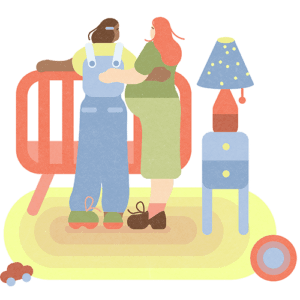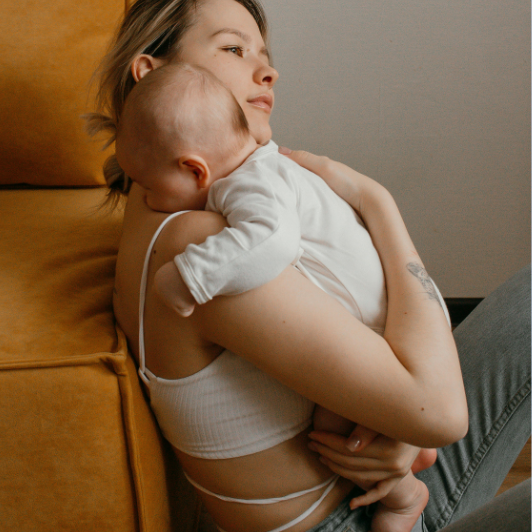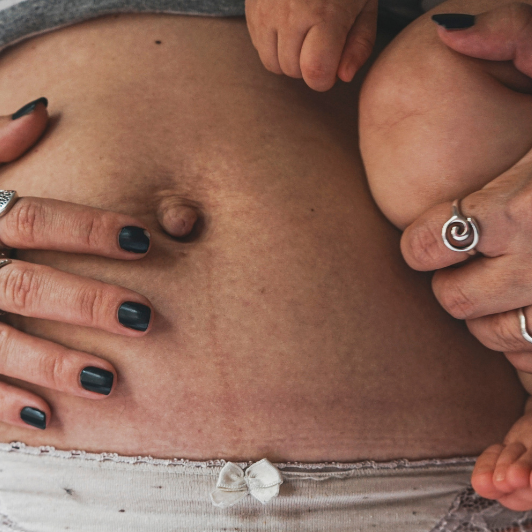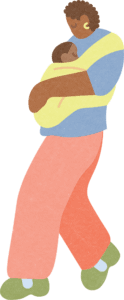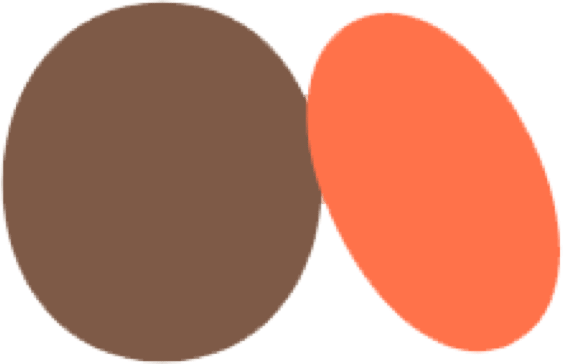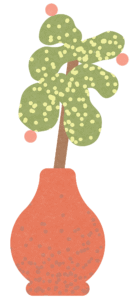You may have heard of Postpartum Thyroiditis, but perhaps you don’t know what it’s all about, so we’re here with a handy primer for you.
What is Postpartum Thyroiditis?
Postpartum thyroiditis is a postpartum autoimmune disorder, affecting around 5% of postpartum women, which makes it relatively common, and it can have quite significant effects on a woman’s health and well-being. Although it most commonly happens after a live birth, it can also present after a miscarriage/pregnancy loss.
Postpartum thyroiditis happens because the immune system ‘reactivates’ following birth, after being relatively suppressed during pregnancy.

Risk factors of thyroiditis include:
- Prior history of postpartum thyroiditis
- Personal Autoimmune Disorders or Family History
- Type 1 Diabetes Mellitus
- Chronic Viral Hepatitis
- Lupus
- Prior History of Gestational Diabetes
- Antipituitary antibodies
- Previous positive TPO antibodies
Women who are taking thyroid medication during pregnancy may still experience postpartum thyroiditis.
Symptoms of Postpartum Thyroiditis
Postpartum thyroiditis can manifest in two phases:
- The hyperthyroid phase, where the thyroid gland is overactive
- The hypothyroid phase, where the thyroid gland is underactive
Hyperthyroid Phase
This phase often occurs 1-4 months postpartum, and may resolve on its own. During this phase, most women are asymptomatic or only mildly symptomatic.
Common symptoms of hyperthyroid include:
- Irritability
- Heat intolerance
- Fatigue
- Heart palpitations
Hypothyroid Phase
This phase often occurs 3-12 months postpartum, and up to 50% of women may remain hypothyroid at the end of their first postpartum year. Around 10-20% of cases may lead to permanent hypothyroidism.
The Hypothyroid Phase is commonly more symptomatic than the hyperthyroid phase.
Common symptoms of hypothyroid include:
- Cold intolerance
- Dry skin
- Fatigue
- Impaired concentration
- Paresthesias (ex. various skin sensations including burning, itching, numbness, prickling, pins and needles, tingling)
Diagnosis of Postpartum Thyroiditis
Postpartum thyroiditis is typically diagnosed through a symptomatic review, and blood work including:
- Thyroid stimulating hormone (TSH)
- T4 hormone
- Thyroid antibodies – thyroid peroxidase and thyroglobulin
If you’ve been diagnosed with hypothyroidism during pregnancy, you will likely be re-tested early in the postpartum period, with future lab exams depending on if and when the thyrotoxic (hyperthyroid) phase has resolved. Screening for the hypothyroid phase will occur after this.
Women with a prior history of postpartum thyroiditis should have their TSH tested yearly to evaluate for the development of permanent hypothyroidism.
Routine thyroid screening is not recommended for asymptomatic women. That said, if you meet any of the risk factors as mentioned above or have a low milk supply/difficulty lactating, and/or are experiencing postpartum depression – you may want to have your thyroid labs tested around 6-12 weeks postpartum.
Treatment Options for Postpartum Thyroiditis
In the hyperthyroid phase, a beta-blocker may be prescribed based on symptoms experienced. Anti-thyroid drugs are not recommended at this time, because this phase is transient.
In the hypothyroid phase, LT4 treatment should be considered if mild symptoms are experienced, chest/breastfeeding is being attempted, a future pregnancy is desired, or the TSH is high after 6 months.
Next Steps
If you are experiencing any of the above symptoms, it’s important to seek medical attention from your healthcare provider. Early diagnosis and treatment can help manage symptoms and prevent potential complications.
Our Naturopathic Doctors are equipped to help support and complement postpartum thyroiditis treatment by your healthcare provider – this may include correcting vitamin and mineral deficiencies, and sometimes using herbal remedies. Of course, we would ensure that your treatment plan is compatible with lactation goals. Give us a call or book an appointment to see one of our Naturopathic Doctors.


